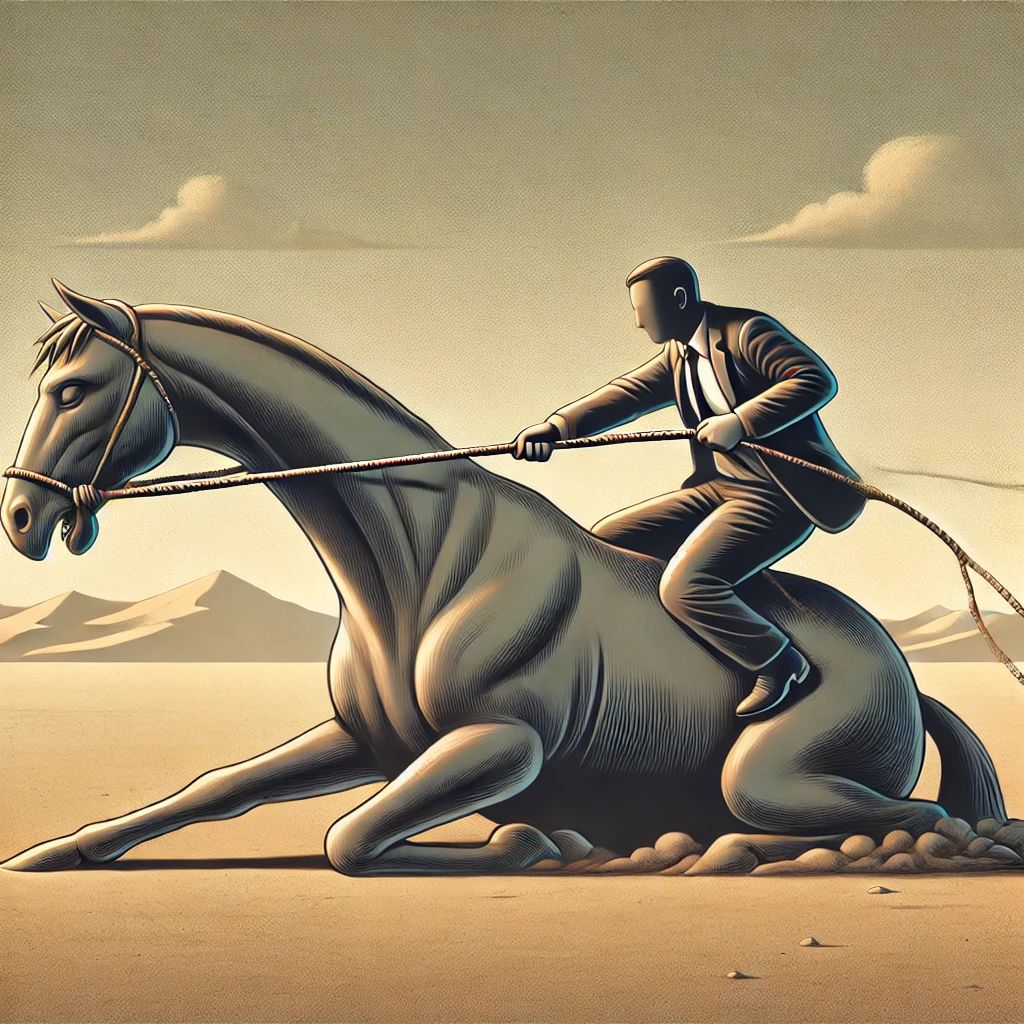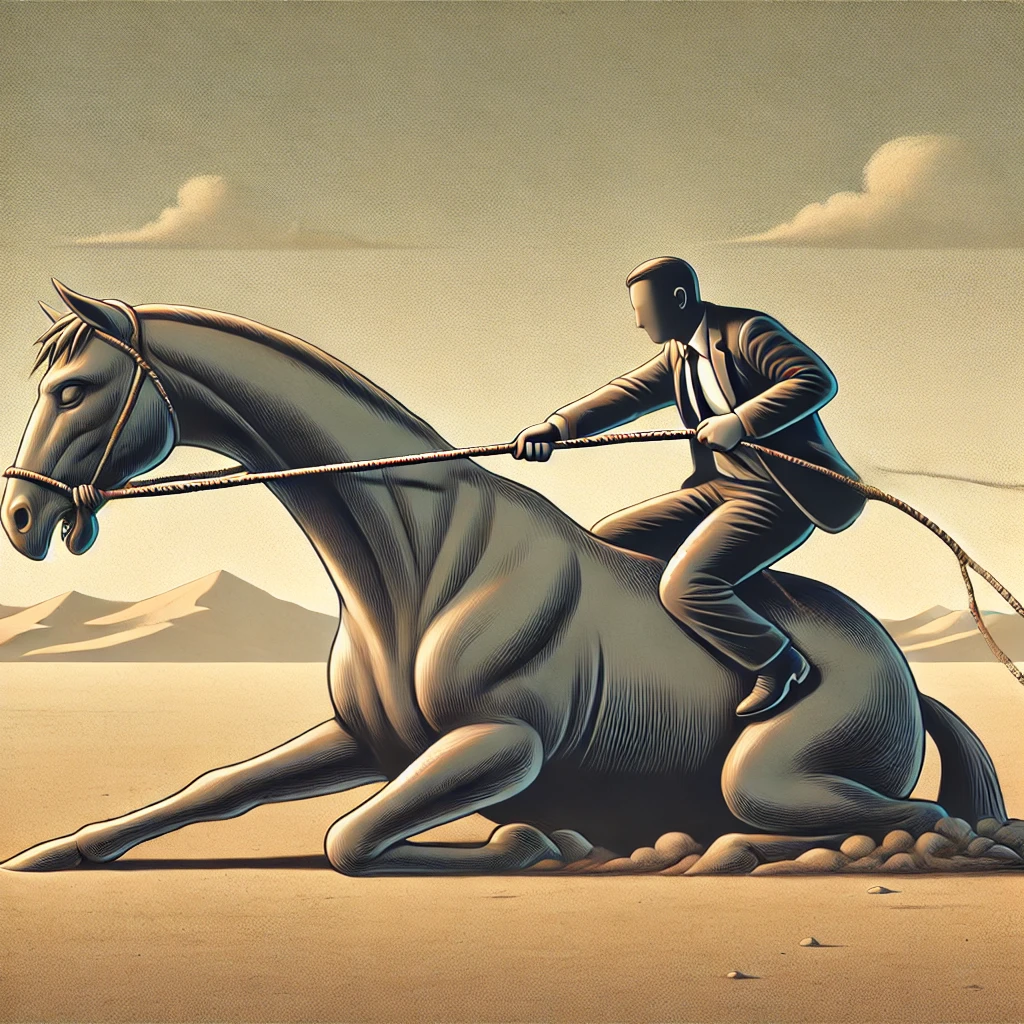The Dead Horse Theory is a metaphor for recognizing when a project, strategy, or effort is no longer viable and knowing when to stop investing time, money, and resources into it. Despite clear signs of failure, people often continue to push forward due to sunk costs, fear of change, or misplaced optimism.
Real-Life Examples of the Dead Horse Theory in Action:
1. Business Failures
BlackBerry’s Decline: BlackBerry dominated the smartphone market in the early 2000s but refused to adapt to touchscreen technology and app-driven ecosystems. Despite declining sales and losing market share to Apple and Android, they kept pushing keyboard-based phones until it was too late. Had they pivoted earlier, they might have remained competitive.
Kodak’s Film Business: Kodak invented digital photography but stuck to film because it was their core business. Instead of adapting, they kept investing in film production until digital cameras and smartphones rendered them obsolete.
2. Personal Careers
Sticking to a Career That No Longer Fits: Someone who has been working in an industry for years but feels unhappy and stagnant may stay simply because they have invested time and effort. If the career no longer aligns with their goals, it’s better to pivot than to continue in frustration.
Refusing to Learn New Skills: A professional who ignores emerging trends (like AI and automation) may find their skills outdated. If they refuse to upskill, they are essentially riding a dead horse while the industry moves on.
3. Relationships and Friendships
Toxic or One-Sided Relationships: If a friendship or romantic relationship consistently drains energy, lacks respect, or has no growth, continuing to invest in it is like riding a dead horse. The wiser choice is to let go and move on.
Partnerships That No Longer Work: Business partnerships sometimes reach a point where visions no longer align. Instead of forcing an unproductive relationship, ending it and exploring new opportunities is often the best course.
4. Government and Policies
Failed Policies That Continue: Governments sometimes hold on to outdated policies despite evidence that they don’t work. For example, the U.S. war on drugs has cost billions, yet drug use and related crimes persist. Rather than reevaluating the strategy, resources continue to be poured into ineffective methods.
Soviet Union’s Economic Model: The USSR continued to operate under a rigid centralized economy even when it was clear it was failing. Instead of reforming earlier, they held on until the entire system collapsed.
5. Technology and Products
Microsoft’s Windows Phone: Microsoft entered the smartphone market late, competing against iOS and Android. Even after it was clear that app developers were not supporting the platform, they kept pushing the Windows Phone until they finally abandoned it in 2017.
MySpace’s Resistance to Change: MySpace was once the leading social media platform, but instead of evolving with user expectations like Facebook did, they held on to outdated models and eventually became irrelevant.
Key Takeaway
Recognizing a “dead horse” early and making the tough decision to move on is essential for success. Whether in business, relationships, or personal growth, holding on too long to a failing strategy wastes valuable time and resources. Knowing when to pivot, adapt, or quit is a crucial skill for long-term success.

